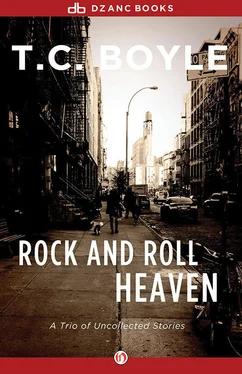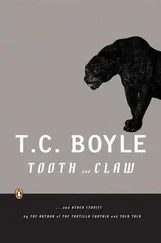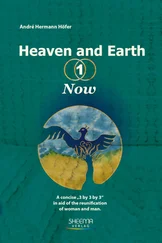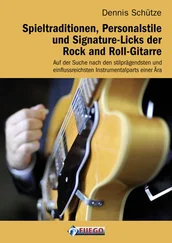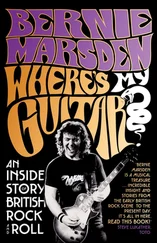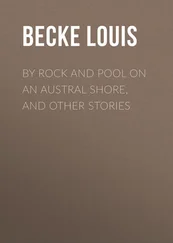T. Boyle - Rock and Roll Heaven - A Trio of Uncollected Stories
Здесь есть возможность читать онлайн «T. Boyle - Rock and Roll Heaven - A Trio of Uncollected Stories» весь текст электронной книги совершенно бесплатно (целиком полную версию без сокращений). В некоторых случаях можно слушать аудио, скачать через торрент в формате fb2 и присутствует краткое содержание. Год выпуска: 2013, Издательство: Dzanc Books, Жанр: Современная проза, на английском языке. Описание произведения, (предисловие) а так же отзывы посетителей доступны на портале библиотеки ЛибКат.
- Название:Rock and Roll Heaven: A Trio of Uncollected Stories
- Автор:
- Издательство:Dzanc Books
- Жанр:
- Год:2013
- ISBN:нет данных
- Рейтинг книги:5 / 5. Голосов: 1
-
Избранное:Добавить в избранное
- Отзывы:
-
Ваша оценка:
- 100
- 1
- 2
- 3
- 4
- 5
Rock and Roll Heaven: A Trio of Uncollected Stories: краткое содержание, описание и аннотация
Предлагаем к чтению аннотацию, описание, краткое содержание или предисловие (зависит от того, что написал сам автор книги «Rock and Roll Heaven: A Trio of Uncollected Stories»). Если вы не нашли необходимую информацию о книге — напишите в комментариях, мы постараемся отыскать её.
shows all of the qualities that had people excited about Boyle from the beginning — great ideas, dazzling writing full of wit, black humor, and wisdom. These three stories were published in journals but have not been included as of yet in any of Boyle’s short story collections. Combined here, all Boyle fans have easy access to reading them now.
Rock and Roll Heaven: A Trio of Uncollected Stories — читать онлайн бесплатно полную книгу (весь текст) целиком
Ниже представлен текст книги, разбитый по страницам. Система сохранения места последней прочитанной страницы, позволяет с удобством читать онлайн бесплатно книгу «Rock and Roll Heaven: A Trio of Uncollected Stories», без необходимости каждый раз заново искать на чём Вы остановились. Поставьте закладку, и сможете в любой момент перейти на страницу, на которой закончили чтение.
Интервал:
Закладка:
T. C. Boyle
Rock and Roll Heaven: A Trio of Uncollected Stories
MISE EN SCENE
A tree, center stage, its branches bare and withered. To the right a cluster of papier-mâché boulders, their crowns touched with white paint to suggest snow. A strip of yellowed meadow grass, a wilted wildflower. To the left stage front a solitary boulder, larger than the others, large enough to conceal a standing man. The backdrop is a mountain scene: Jungfrau, Matterhorn, Dufourspitz. THE STAG hangs from the tree by its rear hoofs, a puddle of stage-blood on the floor beneath its tongue. There is the sound of wind .
THE YOUNG MAN enters from stage left, in alpine gear. His face is smooth as glass, his eyes blue as bullets. The wind has tossed his flaxen hair, and he is breathing heavily. His makeup runs with sweat. He makes as if to throw himself down on the strip of yellowed grass, but starts at a sound from offstage right. Hallooing is heard in the distance. He drops THE BABY and darts behind the boulders in the rear, crouched on all fours. THE BABY wails in two quick bursts like an automatic weapon, then cuts to a gagging mewl and begins crawling toward the STAG. THE BABY comes to rest beneath the dripping tongue. It sleeps .
THE DWARF enters from right, his back bowed beneath a mahogany table. His face is as furrowed as THE YOUNG MAN’s is smooth. His eyes are black. When he sets the table down just to the right of the tree, the legs screech. He lifts his Tyrolean hat and wipes his brow. Then hurries off stage right, like a man on an errand .
THE YOUNG MAN begins to emerge but ducks back when THE GIRL rushes in, her hair in braids. She looks wildly about her, then digs in her petticoat and produces a watch which she consults in great agitation. Then her eyes fall on THE BABY puddled in blood, and she faints, coordinating her movements so as to land behind the fringe of yellowed grass. All that remain visible are her bare legs, thrust through the vegetation. THE YOUNG MAN emerges and stares down at them. He kneels, begins to trace his finger along the legs, then his tongue .
At that moment a piping is heard. THE YOUNG MAN, flustered and ashamed, leaps to his feet and spins about, looking for a place to secrete himself as the piping grows progressively louder. Finally he rushes for the boulder, stage front. He drops THE ELECTRIC TOASTER in his excitement, but manages to conceal himself before PAN enters, piping, PAN’s hocks are shaggy and lewd, his twin horns bald and phallic. He clatters to the tree and scrambles up into the branches as THE SHEPHERD appears, leading a flock of crouching extras in woolly capes. THE SHEPHERD dodders along, trembling on his staff, the odor of sheepshit enveloping the stage, wafting out into the first rows. He pauses before THE BABY, shakes his head, tsks his tongue, and shuffles off. The wind begins to howl .
THE YOUNG MAN peers around the corner of the boulder, his back to THE AUDIENCE. He is about to step forward when THE MURDERER enters, stage left, heaving for breath. Like THE YOUNG MAN he too is dressed in alpine garb, though his shorts and blouse and lederhosen are ill-fitting — he looks like a black bear pinched into a boy scout uniform. He carries an axe in his hand, a sack of heads slung over his back. Noses, ears and chins can be seen protruding from the many rents in the sack’s fabric. He sets his burden down and sniffs about the stage until he finds THE GIRL. He raises the axe. THE YOUNG MAN hesitates, does not fly to her aid. THE MURDERER’s axe flashes like a mirror in the glare of the stage lights. His shoulders swell. But then a yodel sounds offstage right, and THE MURDERER lowers his axe with a craven sneer and slinks behind the cluster of snow-capped boulders .
THE DWARF enters from the right, THE IDIOT in tow. A mountaineer’s rope joins them. THE DWARF is balancing a stack of chairs on his back. THE IDIOT carries a tea service for five, and a highchair. They proceed to set the table, THE IDIOT periodically blundering over the rope. THE GIRL wakes, shakes the grass splinters from her skirt, and sets THE BABY in the highchair before taking a seat at the table herself. Then PAN climbs down from the tree to join her, and THE YOUNG MAN steps from behind the rock and seats himself at her right. She smiles at THE YOUNG MAN. PAN pats her knee. THE DWARF sits and THE IDIOT pours the tea .
At the rear of the stage the lacquered rocks begin to quiver — and THE MURDERER stands, massive as an avalanche. The others ignore him, busying themselves with the tea things. THE BABY slaps a spoon on its saucer and rattles its cup. THE IDIOT crouches over THE TOASTER, stage center, working the lever, slavering into the coils. THE YOUNG MAN glares at THE MURDERER, righteous indignation in his eye. THE STAG bleeds. THE GIRL looks at THE YOUNG MAN. PAN looks at THE GIRL. THE DWARD looks at PAN. THE MURDERER glares at THE YOUNG MAN and opens his mouth to speak .
THE AUDIENCE leans forward .
CROSSINGS
for Julio Cortázar
On the second page the girl was murdered. Kelius read on. The murderer, as yet faceless, spread a plastic dropcloth over the tiles in the kitchen and drew a surgeon’s hacksaw from the lining of his overcoat. He began to disremember the body. In detail. Kelius was sickened, recalled to himself that it was only fiction, and read on, oblivious to the jolting of the bus. The murderer wedged the torso into a suitcase, arranged the limbs around it, packed tight, before the stiffness began to set in. It was 4:51. The girl’s father was due home at 5:00. Even now he was out in the street, striding along in the welter of heads and shoulders, handbags and briefcases. Kelius watched the glow of the kitchen clock as the murderer hurried to hide his traces. Suddenly the bus was stopping. Kelius looked up and his stomach clenched — they were at the border already. Half a page left in the chapter. His eyes rushed down the ranks of columns and letters. The murderer was rinsing his dropcloth in the shower, water running red against the porcelain. Then he rolled it up, jammed it into the suitcase, dropped the twin latches, hefted his burden and slipped out the door. “Señor.” It was the bus driver. “Es la hora de bajar. Estamos llegado a la frontera.” Kelius did not speak the language, but understood the gestures. He reluctantly folded back the page, tucked the book under his arm, and stepped out into the sun.
There were men in uniforms with mustaches and automatic weapons. A gate, a little brick building, two jeeps, a truck, an old Ford. Kelius could make out the river off to his right, a metallic glint caught in the tentacles of the cactus. He followed the others into the building.
It was absurd, he knew, but every time he went through this he felt that something would go wrong, that they’d somehow detain him, refuse to let him pass the border. He never dealt in contraband, and gladly paid duty on the things he brought back to sell in his tourist shop. And he had money. Still, he thought of the uniforms, the strange harsh language and arcane laws, the implacable yellow faces of the men with guns.
Inside he showed his passport. The man behind the desk made a notation in his ledger and stamped the document. “Pase por la puerta allá,” he said, indicating a door at the far end of the room. Kelius followed the finger, beginning to sweat under the arm where he’d tucked the book.
The door opened into a larger room with a long table. The other passengers were there. They were spreading their luggage on the table for the benefit of the inspectors. Kelius observed that the inspectors wore uniforms identical to those worn by the men outside. They were young and relentless. They neither smiled, nor spoke. They pointed, poked, sifted, rattled Kelius waited his turn. He rested a foot on one of his bags, the silver K like a mirror, then opened the book and resumed his reading. The story rushed back on him. He saw the girl’s father standing at the elevator, watching the numbers descend. And then the murderer brushing by him as the doors parted. The irony. The father stepped into the elevator and the doors closed on him like the shutter of a lens. At the same moment the murderer hurried through the front door, down the steps and into the street. His gait was awkward, the suitcase tugging at his arm. Up the street, the bus. He hailed it. “Señor.” Kelius looked up. His suitcase was on the table. The inspector motioned for him to open it. It was then that he became aware of the flies, then that the blood rushed to his bowels, then that he tripped the twin latches and pulled back the lid of the suitcase, stamped with flashing K and packed tight with the stiff, wet, hacked and already decomposing flesh of a young girl.
Читать дальшеИнтервал:
Закладка:
Похожие книги на «Rock and Roll Heaven: A Trio of Uncollected Stories»
Представляем Вашему вниманию похожие книги на «Rock and Roll Heaven: A Trio of Uncollected Stories» списком для выбора. Мы отобрали схожую по названию и смыслу литературу в надежде предоставить читателям больше вариантов отыскать новые, интересные, ещё непрочитанные произведения.
Обсуждение, отзывы о книге «Rock and Roll Heaven: A Trio of Uncollected Stories» и просто собственные мнения читателей. Оставьте ваши комментарии, напишите, что Вы думаете о произведении, его смысле или главных героях. Укажите что конкретно понравилось, а что нет, и почему Вы так считаете.
